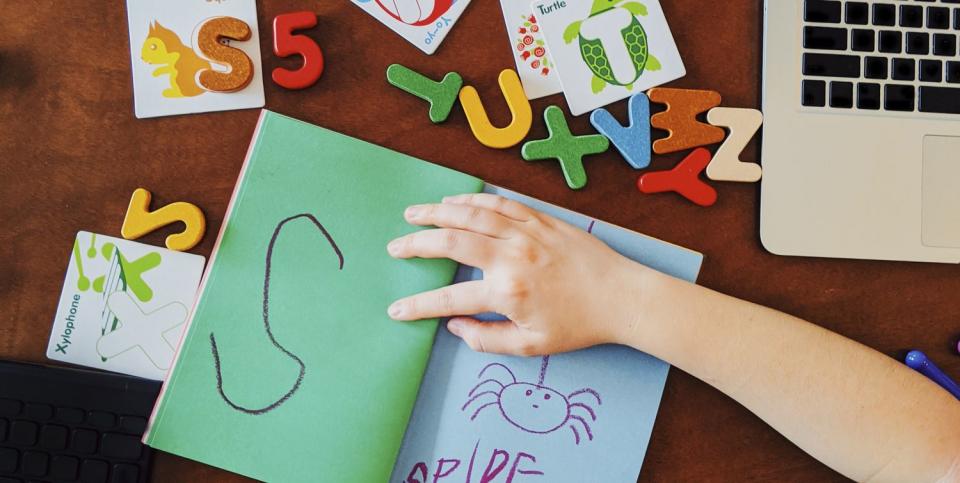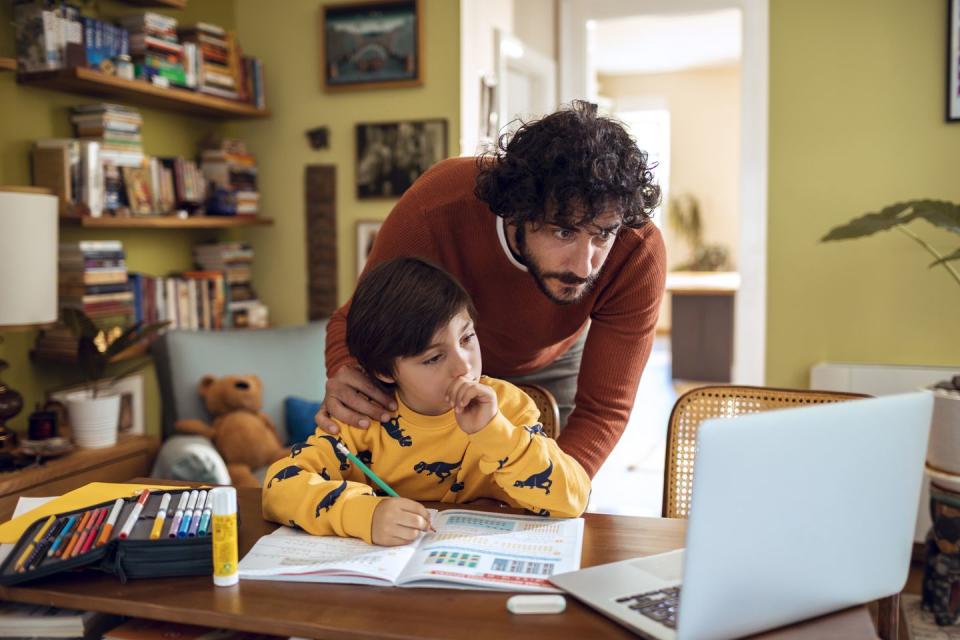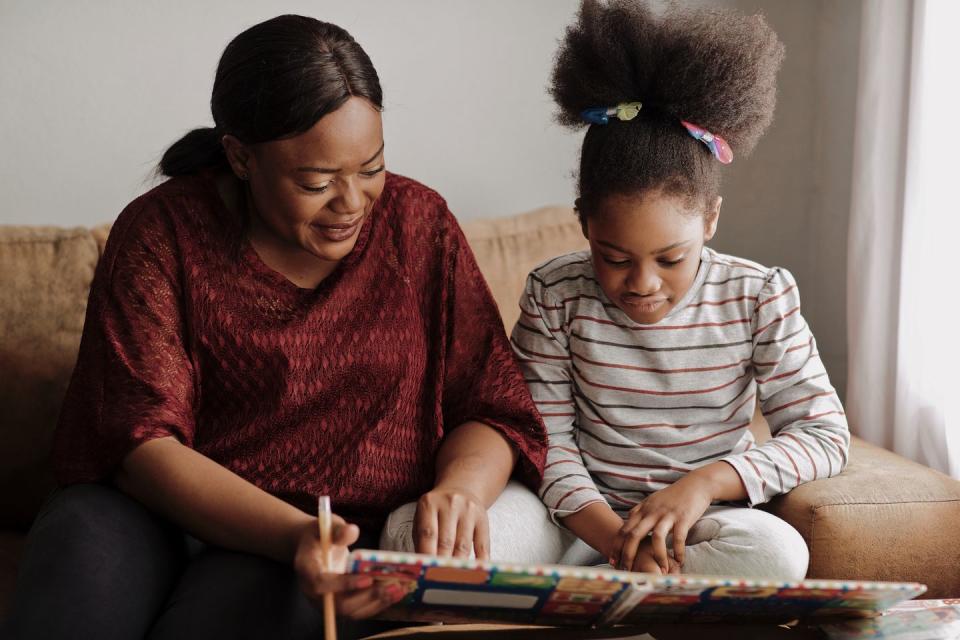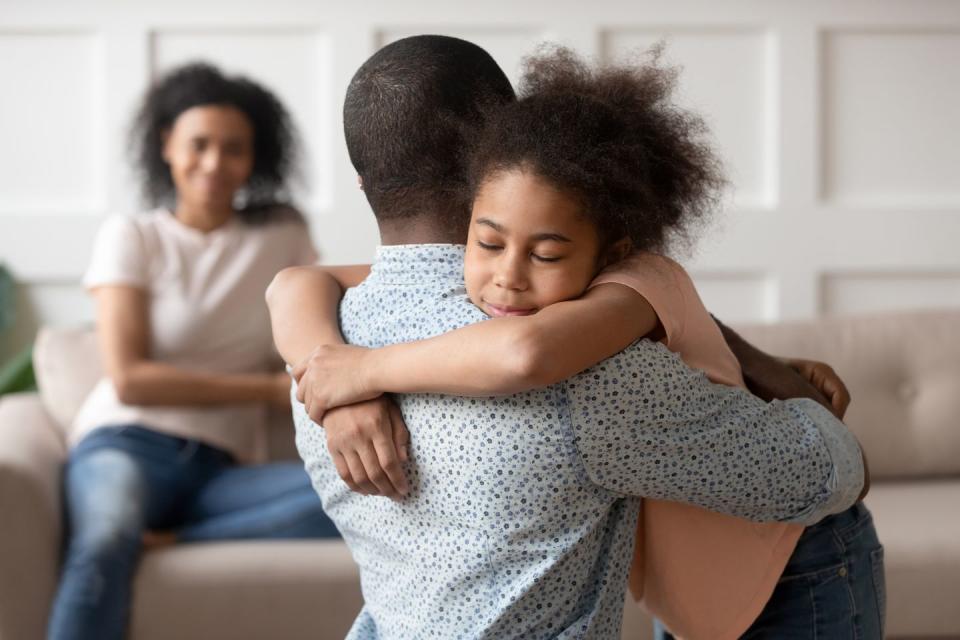Experts share their advice on coping with the stresses of home schooling

With the majority of UK school and college pupils now being told to stay at home, many parents and guardians are again adding home schooling to their list of responsibilities.
Apart from vulnerable children and the children of key workers, most primary and secondary age kids have switched back to home learning - something families previously adjusted to in the first lockdown back in 2020.
Keeping children focussed on work while they’re sat at the kitchen table – often at the same time as parents are trying to continue with their own work from home – can feel like an impossible task, but it’s important to keep positive and celebrate wins, irrespective of how small they seem. Yes, you might have bad days, but know these are to be expected and remember to take stock when a better day comes along.
“My main piece of advice would be to accept that home schooling is very likely to be stressful. If you’re trying to create a harmonious household where everyone is getting on with no squabbling then you may be disappointed and frustrated when it doesn’t work out like that. Acceptance of the stress might make it easier to tolerate because you expect it to be part of the daily routine,” said Relate counsellor Holly Roberts.
“Overall, be kind to yoursef, knowing that you are doing the best you can. The lockdown is hard for you and your kids, so if you can approach home schooling with a kindness that allows you to slip up and make mistakes, you may feel more able to dust yourself off and start again the next day without feeling too disheartened,” Holly added.
“It’s important that families acknowledge that it's been a difficult, stop-start time that’s meant routines have been thrown into the air. It’s also important that they are kind to themselves and remember that they are working in this very difficult context, this new normal we're now calling it,” said Joanne Hipplewith, a family and systemic psychotherapist.
Be kind to yourself
“Try to focus not so much on what you feel you’re not doing well but perhaps focus instead on what you’re doing that is good enough, and perhaps then make improvements from there,” she added.
Noah Higgs, an Irish language teacher and contributor to Duolingo feels it’s important for parents to acknowledge that teaching is a difficult job, but one that can bring many rewards.
“The nice thing about parents being with their own child is that they probably know their child's behaviour patterns quite well, and when they’re putting in an honest effort or not. All you can expect, really, ever is an honest effort, and you're getting engagement on the day but maybe they don't manage to finish the exercise, that's okay,” he said.
“You can't really afford to only focus on the bottom line, you have to also look at the progress that you made and the time that you spent with them. Focus on the small wins.”
PE teacher Simon Bradbury agrees.
“Don't feel down if your child has been given five tasks to do and they've only done two or three. School staff know the pressures there are at home so I would say just do as much as you can and if some days you don't get anything done, then, tomorrow's a different day,” he said.

Coping strategies
The word ‘unprecedented’ has been used a lot since the pandemic first took hold, but it’s important to keep it in mind during difficult situations we're encountering without a roadmap of how to deal with them.
“In a global pandemic, we’re living in present history, and therefore we don't have a back-up plan way of coping with the feelings and the experiences that we're having,” Joanne said.
“With schools being on and off, we're finding our way through it and it’s important that parents and children take some time to do some mindfulness; to be thoughtful about what’s going on, what's in our control, what's not in our control but what can we do to find some sense of calm."
Joanne recommends spending time getting outside and exercising, focusing on slow and mindful breathing, or listening to some music, and suggests these can be done as a family, as a way of connecting.
"If things are going a bit wrong, because your child’s tin foil man won’t stand up straight or the maths equation is just too difficult and you can’t get out of an important Teams meeting to sort everything out, then encourage everyone to just breathe. Pausing for a moment will help take the heat out of the situation and you’re all less likely to snap at each other,” counsellor Holly said.
Creating new routines
Without the daily routine of getting dressed, leaving home and being in a different environment with teachers and friends at school, a lot has changed for kids and it’s vital that parents and guardians recognise that. While you can try to replicate some elements of that in-school routine at home, you might also need to choose some parts to let go of.
“Just like us parents and guardians have had to adapt to working at home and we’ve at times found it strange, it’s the same for children. It’s about recognising it's a different environment they're working in so they don't necessarily have to put on their uniform, they can do work in their pyjamas. Is it really important that they have their shower before they do their first lesson now they’re not in the school environment? How much of that environment do we want to in the home, and how much can we adapt that structure?” Joanne asks.
Joanne recommends replicating the regular breaks children would normally have at school, and suggests using some breaks as an opportunity for them to connect with friends online or to enjoy some family time if parents break from work at the same point.

Don’t forget about quality family time
With the demands of home learning and home working changing the dynamic of many households, it’s important to still make space for quality time.
“Life has changed – work, school, exams – that flux is still happening and there’s a high level of uncertainty, but it does also bring the opportunity to spend quality time with our children,” Joanne said.
“During their school breaks, you can do things together. Think of the lockdown as a golden opportunity to take time to engage with your children, to understand how they're changing and developing, and to discuss any concerns they might have," she said.
“You have this really time-consuming thing you have to do if you're supporting your kids in their school like this but in another way, if you have the time to indulge into it, it's an amazing way to connect with your kids in a way that probably most parents haven't before or haven’t that much,” said teacher Noah.
“I think a lot of parents might come out of it, hopefully, feeling a stronger bond with their kids even because it's quite an experience to learn something together. So I'd say to parents who are struggling to fit it all in, if you have to sit down with your kid for two or three hours a day anyway, you may as well try to get something out of it yourself and make it into quality time. Teaching doesn't have to be separate from enjoying yourself.”

Get kids involved in decision making
Just like adults, children are aware that the world has changed and much of it is out of their control. One thing families can do to maintain a sense of control over their daily lives and emotions is to talk about them. Joanne feels it’s key that parents and guardians bring kids into the conversation about how home schooling is going and what needs to change in order for everyone to be happier.
“Kids will be the first one to say: ‘I'm not at school. You're not my teacher.’ They have a different relationship with their parents, guardians, or carers. So it's important to keep on negotiating and talking about it and recognising that it’s a change for everybody. Obviously, school work is important, it does need to be done. But talk about how you can make it maybe more fun for everyone,” she said.
“It's an opportunity to do something differently by looking at an opportunity, not something negative, and moving forward together,” she said.
Relate provides relationship counselling to couples, families and individuals. They are also offering free 30 minute WebChats with Relationships and Wellbeing Advisors to anyone aged 18+ who is living in England and affected by the COVID-19 pandemic. Find out more at relate.org.uk/relatehub.
You can also find a therapist through the Institute of Family Therapy. Information about choosing a therapist can be accessed through AFT. To access online information and support regarding mental health, you can visit the NHS website as well as charities like Mind. Samaritans' helpline can be contacted for free at any time of day on 116 123 and you can also email the charity at jo@samaritans.org.
Like this article? Sign up to our newsletter to get more articles like this delivered straight to your inbox.
In need of some positivity or not able to make it to the shops? Enjoy Good Housekeeping delivered directly to your door every month! Subscribe to Good Housekeeping magazine now.
You Might Also Like

 Yahoo Finance
Yahoo Finance